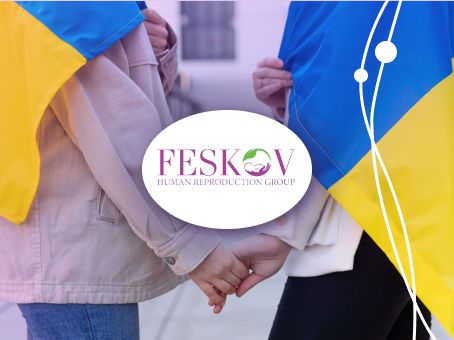
Legality Of Surrogacy In Ukraine

Surrogacy in Ukraineisbest known in the world not only for its combination of world-class reproductive medicine with very reasonable prices, but also for the absolute legality of a surrogate mother providing her services in Ukraine.
- Law of Ukraine on surrogacy: grounds for participation in the reproductive program
- Pregnancy agreement
- Birth Certificate Registration
- Citizenship of children born in Ukraine through surrogacy
- Marriage of intended parents
Laws on Ukrainian surrogacy fully protect the rights of intended parents, without neglecting the rights of the surrogate mother in Ukraine.
In this article we will take a detailed look at the norms and provisions of documents regulating Ukrainian surrogacy, in particular, the most important points for future parents:
- legislative grounds for conducting a reproductive program with the participation of a Ukrainian surrogate mother;
- registration of a birth certificate;
- registration of travel documents for newborns;
- citizenship of a child born with the help of a surrogate mother in Ukraine.
We hope you will find answers to all your questions and appreciate the broad prospects for surrogacy in Ukraine for intended parents.
Law of Ukraine on surrogacy: grounds for participation in the reproductive program
The list of documents regulating the use of reproductive technologies, including through participation in the surrogate mother program in Ukraine, includes:
- Law of Ukraine 2801-XII dated 19/11/1992. Fundamentals of Ukrainian legislation on healthcare;
- Instructions on the procedure for assisted reproductive technologies, approved by order of the Ministry of Health of Ukraine No. 787 dated 09.09.2013 (hereinafter referred to as the Instructions on the procedure for ART)
- Family Code of Ukraine, adopted by the Law of Ukraine No. 2947-III dated 01.10.2002;
- Provisions of the Civil Code of Ukraine regarding contractual obligations and representation;
- Provisions of the Tax Code of Ukraine regarding personal income tax;
- Law of Ukraine No. 3425-XII of 02.09.1993 “On Notaries”;
- Law of Ukraine dated 01.07.2010 No. 2398/VI “On registration of acts of civil status”;
- “Rules for registration of acts of civil status in Ukraine”, approved by order of the Ministry of Justice of Ukraine No. 52/5 dated 18/10/2000;
- Law of Ukraine 2235-III dated 08/01/2001 “On Citizenship of Ukraine”;
- Law of Ukraine 3929-XII of 22.09.2011 “On the legal status of foreigners and stateless persons.”
According to Article 48 of the Law of Ukraine “Fundamentals of Ukrainian Legislation on Health Protection,” IVF and embryo implantation must be carried out for medical reasons to an adult woman undergoing infertility treatment, with the written consent of the spouses, ensuring the anonymity of the donor and maintaining medical confidentiality.
Part 2 of Article 123 of the Family Code of Ukraine regulates the issues of children conceived using ART as a result of a surrogacy program in Ukraine: if embryos are transferred into the body of another woman, then the parents of the child are the spouses who have entered into an agreement.
That is, gestational surrogacy in Ukraine is completely legal. The Family Code does not leave the Ukrainian surrogate mother the opportunity to claim her rights to the newborn. The norms of the Family Code refer to the agreement that was concluded between the surrogate mother and the intended parents.
Article 139 of the Family Code of Ukraine directly prohibits a surrogate mother of Ukraine from challenging the parental rights of the intended mother, with whom a contract has been concluded to bear a child.
For participation in ART programs, Ukrainian legislation establishes the following strict medical indications:
- absence of the uterus (congenital or as a result of surgery);
- deformation of the cavity or cervix, excluding the possibility of pregnancy and childbirth;
- synechiae of the uterine cavity;
- severe somatic diseases that exclude the normal course of pregnancy;
- multiple (more than 4) failed transfers of high-quality embryos.
The testimony must be confirmed by medical reports, drawn up on the official letterhead of the medical institutions that issued them, and contain the signatures of doctors (indicating their full name and position).
Both spouses or the one who is going to provide their genetic material for the creation of embryos must also pass medical tests approved by the Instructions on the procedure for performing ART, standard for all IVF clinics. If medical reports are issued outside of Ukraine, they must be translated into Ukrainian by an official translator.
Marriage of intended parents

Surrogate mothers in Ukrainehave the right to bear a child only for couples who are officially married. Therefore, a marriage certificate is included in the list of documents required for participation in the reproductive program.
If the intended parents are foreign nationals, their marriage certificate must be duly legalized or apostilled in accordance with the provisions of the Convention of 5 October 1961 Abolishing the Requirement of Legalization for Foreign Public Documents.
Future parents have two options:
- original marriage certificate with apostille (the most preferred option);
- a notarized copy of the marriage certificate previously apostilled. An apostille will also be required for a notarized copy (Original > Apostille > Notarized copy > Apostille).
From a review of key legislative norms, it becomes clear that Ukrainian surrogacy is protected by law, reliably protects the rights of intended parents, and excludes the possibility of a surrogate mother receiving custody of the newborn. A child born as a result of surrogacy in Ukraine is recognized as a child of the intended parents from the moment of conception. In this case, the main condition must be met: the genetic connection of at least one of the intended parents with the newborn.
Pregnancy agreement
Intended parents enter into an agreement to bear a child with a surrogate mother in Ukraine. The agreement is concluded in writing by a notary in two copies - one for the intended parents and one for the surrogate mother in Ukraine.
If foreign citizens participate in the program, the agreement must be drawn up in two languages: Ukrainian and the native language of the foreign party.
Birth Certificate Registration
One of the most pleasant features of Ukrainian surrogacy for intended parents: their names are initially entered into the birth record in the Bureau of Vital Statistics.
Registration upon applications of foreign citizens and stateless persons is carried out upon the application of a married couple who has given consent to the embryo transfer. The following documents will need to be submitted to the Bureau of Statistics of Acts of Civil Status:
- notarized consent of the surrogate mother to record the names of the spouses as parents of the child/children;
- a document confirming the fact of the child’s birth and a certificate of genetic relationship between the intended parents and the child.
The surrogate mother's name in the Notes column is confidential information and is kept by the Bureau of Statistics of Acts of Civil Status.
If all documents are ready and in order, registering a birth takes a few hours, and a birth certificate is issued on the day the application is submitted. In most cases, a birth certificate will be issued within 5 business days after the birth of the child.
The intended parents then become the sole legal representatives of the newborn child(ren). The surrogate mother and her husband do not have parental rights to the newborn.
Citizenship of children born in Ukraine through surrogacy

The Law “On Citizenship of Ukraine” does not provide for the automatic acquisition of Ukrainian citizenship by a child born to a surrogate mother as a result of embryo transfer from a foreign couple.
A child born on the territory of Ukraine to foreigners can acquire Ukrainian citizenship only if he has not acquired the citizenship of his parents, and the parents permanently reside in the territory of Ukraine legally (Article 7).
Foreigners and stateless persons enter and leave Ukraine through checkpoints across the state border with a national passport and visa, unless otherwise provided by the legislation of Ukraine. Citizens of states that have concluded international agreements with Ukraine on visa-free travel enter and exit Ukraine using a valid national passport.
That is, intended parents need to obtain a passport or visa for their newborn child/children before leaving for their country of residence.
If a newborn child of foreign citizens needs urgent medical care in Ukraine, the intervention of a consul or representative of the embassy of a foreign state in Ukraine will be required.
Ukrainian legislation also allows reproductive clinics to conduct international reproductive programs. For example, intended parents no longer need to think about how to find a Ukrainian surrogate mother; now surrogate mothers can come to your country to give birth to a child. At the same time, the legalization of a newborn will take place in a simplified manner in accordance with the norms of Ukrainian legislation, since the activities of surrogate mothers who are citizens of Ukraine are regulated by the laws of their country.
To find out about the prospects for participation in the reproductive program of Ukrainian surrogate mothers, order a free consultation with a lawyer on reproductive law from a manager on our website.
- Surrogate motherhood - how not to be deceived
- Advantages of guaranteed surrogacy programs over programs with guaranteed compensation
- Surrogacy in Mexico: What You Need to Know
- Disadvantages of Egg Donation - Only Truth about the Procedure
- Unique Cases of Giving Birth to Children
- Donor egg + IVF: cost, guarantees, pitfalls
- How the History of Surrogacy Changed Over the Years
- Why I Chose «Surrogate Motherhood Center of professor Feskov»
- The First Meeting: 5 Helpful Tips for Surrogates & Intended Parents
- Pregnancy After Miscarriage: Getting Pregnant
- Surrogacy in Ukraine: Legal Aspects
- Women's Age And Fertility
- Let's date you in Paris!
- Historical Changes to Surrogate Laws in Israel
- Egg donor in Europe
- TOP 5 surrogate clinics in Ukraine
- International Surrogacy Program Ukraine-Canada
- Why is surrogacy so expensive — what do you pay for
- 15 facts about Surrogacy
- Egg donation in Canada
Join my mailing list to receive the latest news and updates
Is surrogacy legal in Ukraine?
read moreYes, reproductive programs with the participation of surrogate mothers are completely legal in Ukraine. The law reliably protects the rights of intended parents: the surrogate mother has no rights to the child.What laws govern surrogacy arrangements in Ukraine?
read moreKey issues are regulated by the Civil and Family Codes of Ukraine. In particular, the parental rights of intended parents are protected by Part 2 of Article 123 of the Family Code of Ukraine and Article 139 of the Family Code of Ukraine.Are there any restrictions on who can access surrogacy services in Ukraine?
read moreIntended parents must be officially married, and also pass medical tests approved by the Instructions on the procedure for performing ART, standard for all IVF clinics.How does the legal process for surrogacy work in Ukraine?
read moreIntended parents must submit to the Bureau of Statistics of Acts of Civil Status the notarized consent of the surrogate mother to record the names of the spouses as the parents of the child/children; a document confirming the fact of the child’s birth and a certificate of genetic relationship between the intended parents and the child. In most cases, a child's birth certificate with the names of the intended parents is issued within 5 business days from the date of submission of documents.
